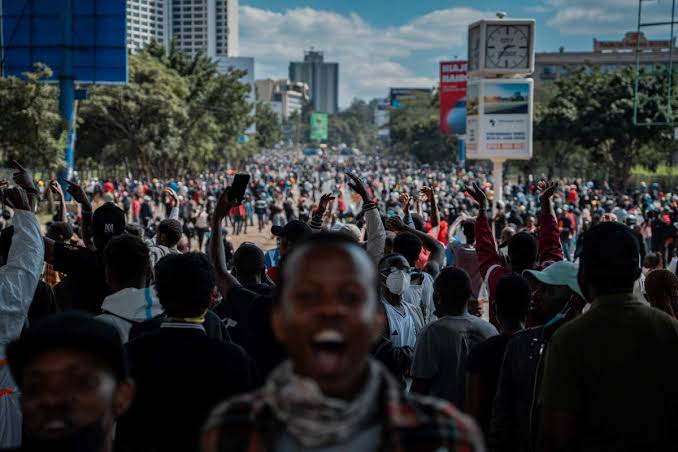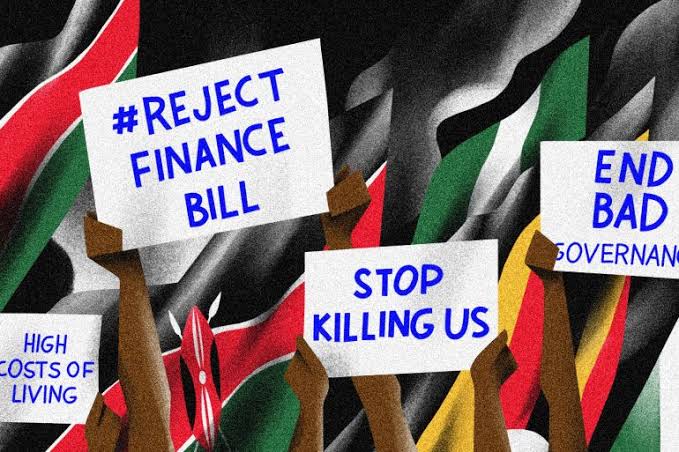Some experts are calling the current wave of protests in Africa a “African Spring,” comparing it to the Arab Spring in the early 2010s. Many people have taken to the streets in countries like Kenya, Uganda, and Nigeria as part of this movement. People are becoming more vocal about fighting their governments over issues like corruption, economic hardship, and poor governance. The recent unrest shows that the political landscape across the continent has changed significantly, pointing to a possible age of major transformation.
Kenya had a run of protests in June 2024 because taxes were going up a lot. The protests started because of problems with the economy, but they quickly turned into a big political crisis. People stormed the Parliament Building in Nairobi because they were angry about rising living costs and what they saw as inefficient government. Social media and the news showed pictures of protesters setting fire to the building and grabbing the formal mace, which is a strong sign of legislative power. The protests were so strong that the government quickly reversed its decision to raise taxes. This shows how powerful public opposition can be in changing policy.

Nigerian streets come alive with demonstrations as citizens call for governance reform.
After the trouble in Kenya, there were more protests against corruption in Uganda. People went out into the streets to protest the widespread graft and bad management in the government. The protests in Uganda show that more and more people are unhappy with the current government leadership and want more openness and accountability. This rise in activism marks a turning point in Ugandan politics, where people are becoming more ready to challenge power structures that have been in place for a long time.
Nigeria has also joined the wave of protests, which are happening over a variety of problems, such as bad government, economic hardship, and corruption. The protests in Nigeria are part of a larger trend on the continent: people are becoming more and more unhappy with how their governments are handling important problems. The protests in Nigeria show that there is more and more support for political and social change in Africa.
Analysts say that these protests should not be seen as a straight copy of the Arab Spring, even though they both started at the local level and called for political change. The phrase “African Spring” might make you think of a single, pan-African movement, but things are more complicated than that. Every country has its own problems, issues, and way of running its government. The protests in Kenya, Uganda, and Nigeria are caused by local problems and past events that are different from what happened in North Africa during the Arab Spring.

Scenes from Kenya: Protesters seize symbolic power in fiery response to economic policies.
Also, it’s still not clear what will happen with these events. They were able to bring important problems to people’s attention and get the government to make some changes, but the long-term effects on government and political stability are still being felt. In many cases, the government’s reaction has been crackdowns and attempts to stop people from speaking out against the government. This has caused people to worry that the growing demand for change could lead to more repression.

From Kenya to Nigeria: The growing wave of protests challenging Africa’s political status quo.
In conclusion, there is a big wave of protest-driven action happening in Africa. Kenya, Uganda, and Nigeria are very much at the front of this movement. The word “African Spring” describes a time of widespread unrest and a desire for change. However, because each country’s situation is different, the way to truly transformative change may be nuanced and different. The current wave of protests shows that people want more responsibility and change, but it’s still too early to tell how this will affect Africa’s politics as a whole.